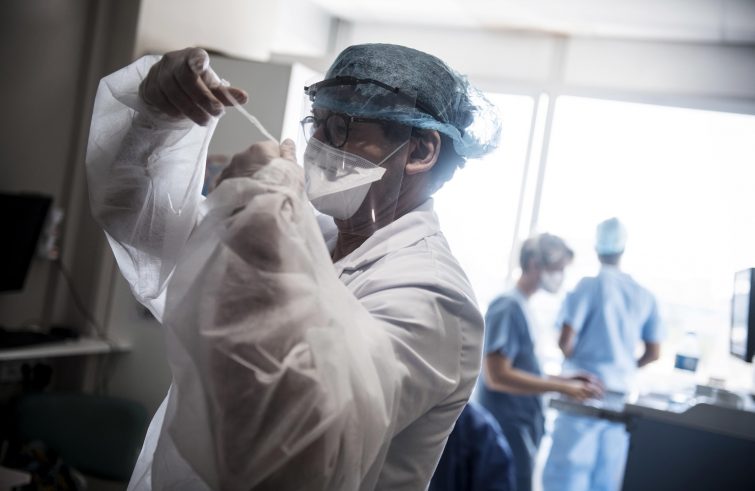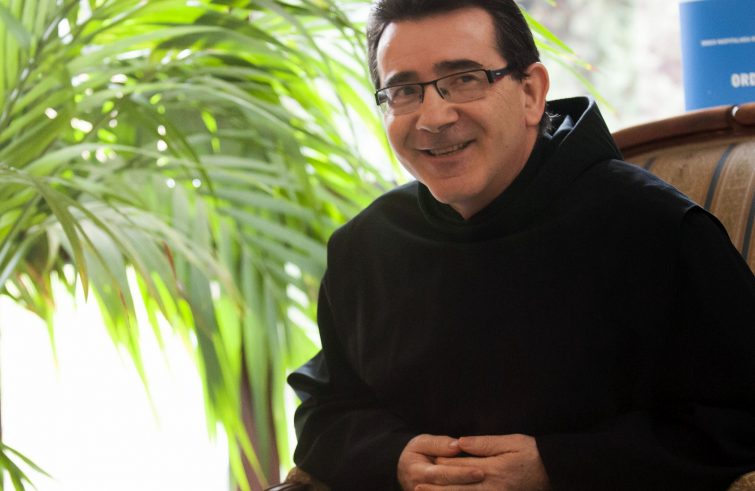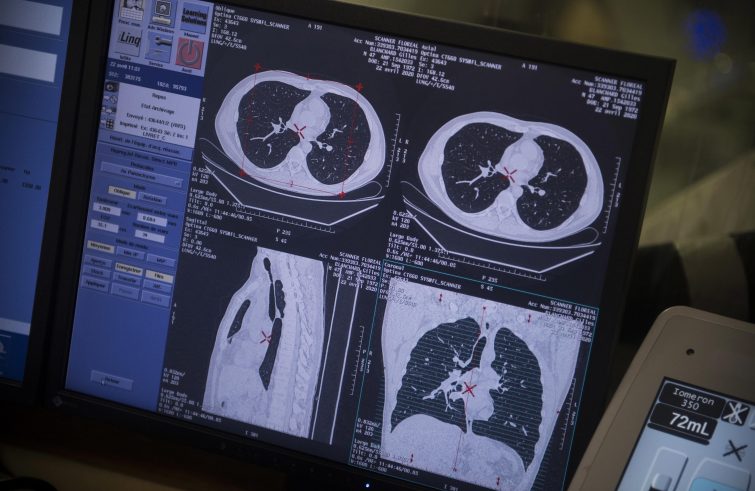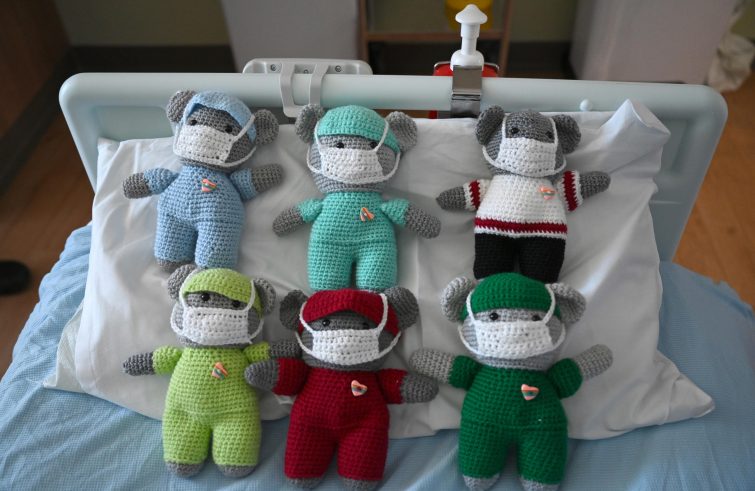
“The pandemic has opened our eyes to the world of health entailing constant concern for the ever present and emerging needs that every health crisis exposes. We see the practical application of what our founder Saint John of God has transmitted to us, with a daily reminder enshrined in our Constitutions. The vow of hospitality that we profess involves the commitment to serve the sick, even at the risk of our lives.” In a moment of pause from his daily activity, constantly coordinating healthcare services in Italy and throughout the world, Friar Jesús Etayo Arrondo, Superior General of the Hospitaller Order of St. John of God, shared with SIR the Order’s efforts against the Coronavirus pandemic.
 How has the Order modified its service for care of the sick?
How has the Order modified its service for care of the sick?
As in the past, and increasingly so in this emergency, the Order has been at the frontlines supporting the National Health System, responding to the medical needs of the Italian population and of the rest of the world. Since the outbreak of the epidemic all of our facilities have been (and continue to be) actively involved, reorganizing the wards and increasing the number of beds available to Covid-19 patients, and protecting all our other patients from the risk of contagion.
This is done unconditionally and with a deep spirit of solidarity and hospitality, giving primary attention to our patients.
Not only the hospitals are in the front line (our Holy Family in Erba and St. Peter’s Hospital in Rome that have assisted a significant number of Covid-19 patients), but also our residential and rehabilitation facilities (in Lombardy alone we assist over 1,000 psychiatric patients).
Have you adopted specific procedures?
In Italy and throughout the world, the Order responded to the emergency situation by stepping up organizational skills to address the pandemic. We were faced with the challenge of equipping all our staff and our patients and guests with Personal Protective Equipment, given a shortage of such equipment on the market; a Crisis Unit was set up in each religious Province and sometimes in each Centre, which convenes almost daily during emergencies in virtual mode, i.e. videoconferences; online meetings to limit travel and personal contact between personnel. Procedures for responding to epidemic emergencies were adopted, which will remain a wealth of knowledge of the Provinces.
We had to resume our role as a “mendicant ” Order, expanding our fundraising skills to cover additional expenses resulting from this emergency.
For years, the Order has been offering a Spiritual and Religious Care Service for residents and staff in each medical centre. In these months of pandemic, this service composed of lay people, religious and priests, in line with the recommendations of the Bishops’ Conference, sought to assist the sick with constant presence, wherever possible, through the sacraments and with spiritual and psychological support for co-workers.

How many Covid-19 patients were admitted into your facilities?
In Italy, more than 440 Covid-19 positive patients have been admitted into our facilities for various reasons. Approximately 1500 in Spain, and a large number in other European countries such as Germany, France, Austria, Portugal and Hungary. In other continents such as America, Asia and Africa there have been few cases so far.
Were your religious infected with the virus while caring for the sick?
Among the religious in Italy there was only one case of an elderly friar who had to be admitted to hospital. A number of women religious who help us in the service for the sick were also infected. They are all in recovery.
Globally, 45 confreres have tested positive so far.
Most of them recovered or are in recovery, but unfortunately 5 elderly confreres have died, four in Spain and one in France. Additionally, some 500 collaborators were infected. Two of them died, one in Italy and one in Colombia. The rest have all recovered.

What forms of attentiveness have you offered to the medical and nursing staff?
We made every effort to convey the closeness of the Religious Family to our staff, sustaining them whenever possible in their daily needs.
While our employees have been waiting for the renewal of their national employment contracts for many years, some Provinces, in Italy in particular, are drawing up a set of proposals aimed at supporting the trust and income of their families. These initiatives will be shared with trade unions in the coming weeks.
Through our Provincial Pastoral Centre we created a dedicated service to respond to their requests and needs in order to help them overcome difficulties in receiving assistance. In other parts of the world with greater needs, members of our Family (staff and volunteers) distribute food aid, or other basic forms of support, for the sustainability of their families.
How does a religious person with a vocation for caring for people’s health cope with a pandemic?
This pandemic has deeply impacted our religious life. Many times we reflected on our mission of service to the sick and to our collaborators. Our identity of Brothers consecrated in Hospitality emerged all the more intensely. Not everyone had the opportunity to care for the sick on account of their age or poor health, but everyone devoted much time and attention to what was happening in the facilities we run, with proximity, concern, suggestions and proposals for responding to the epidemic. Some of us participated personally in the organization of this emergency while other brothers offered direct assistance to people. In particular, I would like to highlight the efforts of the young community of our novitiate which has continued and continues to serve the underprivileged, homeless and immigrant people in one of our centres in Brescia.










